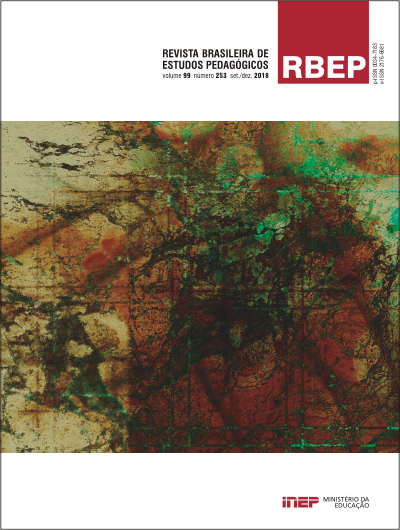Liquid Pedagogy: a pathway to the science of praxis
Abstract
Pedagogy, whose identity is continually under discussion among educators, features once more; this time to reclaim its relevance twelve years after the implementation of the guidelines for this academic course. The starting point for this work is the systematization of some old discussions, some dating back from the course’s creation, aiming to understand incongruities among the political-ideological field, the legislation and the practical-professional field, amidst the power struggles between education theorist and political legislators. The analysis of the ambiguity and flaccidity of pedagogy in its structural conditioning, therefore, will sit in two great axes seeking to substantiate the existence of a liquid pedagogy to the detriment of the sciences of praxis. The first axis is underpinned on the educational reform in Latin America and the Caribbean within the context of liquid modernity and the second one is underpinned on the relation between the interests of international organizations and the latest guidelines for the course. The investigation’s theoretical-methodological perspective followed the critical line in the field of education and it is based chiefly on Mészáros (2008), Saviani (2013), Frigotto and Ciavatta (2003), Libâneo (2001; 2006; 2010), Pimenta (2006), Franco (2006; 2008), Kuenzer and Rodrigues (2007) and Silva (2006); as well as on Bauman’s sociological concept of liquid modernity (2001; 2005). As for the material applied, primary and bibliographic sources were analyzed. The research signals towards a surpassing of pedagogy as standardizer and orchestrater of teaching and suggests the appropriation of this fluid characteristic as a fortifier of its identity as a science of praxis.
Downloads
Once their work is accepted for publication, author’s copyrights are automatically relinquished to the National Institute for Educational Studies and Research Anísio Teixeira (Inep).
Since 2016, the journal Revista Brasileira de Estudos Pedagógicos (RBEP) uses the licence CC-BY.
Partial or total reproduction of the content of this Journal is permitted provided that the original publication is properly referenced, as well as a link to license CC BY 4.0 and to indicate any possible alterations made to the article.




















